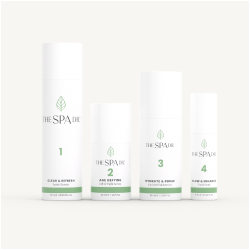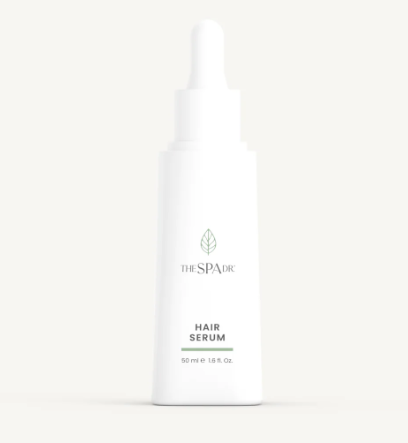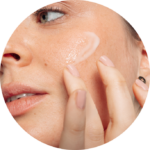As women navigate life, the connection between their physical and mental well-being becomes increasingly apparent, especially during times of hormonal fluctuation.
The mind-body connection shows how thoughts, emotions, and beliefs can influence overall health, and how physical changes may affect emotional balance in return. This is particularly relevant for women approaching perimenopause and menopause, a natural phase marked by hormonal fluctuations that may influence mental wellness.
Many women in this stage experience mood swings, increased worry, disrupted sleep, and brain fog. These challenges can sometimes feel isolating and overwhelming.
However, it’s important to understand that these shifts are a normal, though sometimes difficult, part of aging. With the right information, supportive strategies, and helpful resources, women can approach this stage in ways that encourage resilience and vitality.
With a holistic approach, you can journey through these transitions and support your well-being throughout this stage of life.
Understanding Hormonal Changes During Perimenopause & Menopause
The transition into perimenopause and menopause involves changes in key hormones such as estrogen and progesterone. These hormones not only guide the menstrual cycle but also influence the brain and emotional states.
Estrogen plays a role in neurotransmitters such as serotonin and dopamine, which are associated with mood, focus, and feelings of well-being. As estrogen levels change, this balance may be disrupted, which can influence mood and clarity.
Progesterone is often linked with calmness and restful sleep. As progesterone decreases, many women notice greater irritability, anxiety, or sleep disturbances. The unpredictability of these fluctuations can feel like a rollercoaster, with calm periods followed by sudden changes in mood or energy.
These natural hormonal changes may contribute to experiences such as heightened stress or irritability, lower energy, mood shifts, or challenges with focus and clarity, often referred to as “brain fog.”
Recognizing that these experiences are part of a physiological transition—and not personal shortcomings—is an empowering first step in managing them with compassion.
The Mind-Body Connection Explained
The hormonal changes of perimenopause and menopause affect more than just the physical body; they also influence emotional well-being. This is the essence of the mind-body connection: the way that physical health and mental state continuously interact. During this stage of life, the connection can become more pronounced, sometimes creating cycles that reinforce challenges.
Stress and sleep are two key factors that can intensify these effects. Chronic stress raises cortisol, the body’s primary stress hormone, which can further disrupt hormonal balance and amplify mood swings or sleep issues. Similarly, disrupted sleep can increase stress levels, creating a loop where one makes the other worse. Recognizing this cycle allows women to introduce practices that restore balance to both mind and body.
Mental Health Tips For Women Approaching Menopause
Navigating perimenopause and menopause with resilience often means taking a holistic approach that addresses both physical and emotional well-being. Intentional lifestyle practices, nourishing foods, supportive supplements, and mindful self-care rituals can help ease the challenges of this transition.
Prioritizing consistent sleep is especially important, as hormonal changes may disrupt rest. Establishing a calming bedtime routine and keeping regular hours can help support more restorative sleep.
Gentle movement such as yoga, walking outdoors, or light strength training can also help manage stress and boost overall well-being, without overwhelming the body. Stress-management practices like deep breathing, meditation, or journaling provide outlets for releasing tension and encouraging calm.
Nutrition is another cornerstone of support during this stage. Choosing whole, unprocessed foods such as colorful fruits and vegetables, lean proteins, and healthy fats provides essential nutrients that help maintain steady energy and mood. Staying hydrated is also key, while reducing caffeine or alcohol may support better sleep and calmness.
Supplements can also be part of a supportive routine. The Spa Dr. offers clean, high-quality options, including Hormone Balance Blend, designed to support women’s overall wellness during this stage of life.* These formulations encourage balance, promote a calm state of mind, and support restful sleep, which together help nurture mental clarity and resilience.*
Beyond physical health, self-care practices can nurture emotional well-being. Skincare, for example, can be more than cosmetic—it can become a mindful ritual that fosters calm. The Spa Dr.® 3-Step Age-Defying System is crafted with botanicals such as ginseng and ylang-ylang, ingredients appreciated for their soothing and uplifting qualities. These rituals can provide not only skin support but also a moment of daily calm.
Emotional Wellness Strategies
Emotional well-being during perimenopause and menopause is supported not only by daily habits but also by connection and perspective. Building supportive communities—whether with friends, peer groups, or online forums—can ease feelings of isolation and offer encouragement. Therapy, coaching, or mindfulness-based programs can provide guidance and tools for navigating emotional shifts with confidence.
Equally important is practicing self-compassion. Approaching this stage with kindness toward oneself, rather than judgment, can make the challenges easier to bear. Reframing menopause as a natural progression rather than a decline can also shift perspective—opening the door to see it as a chapter of growth, discovery, and renewed vitality.
When To Seek Professional Support
Although many changes during perimenopause and menopause are part of the natural transition, sometimes professional support is helpful. Persistent sadness, loss of interest in activities, noticeable changes in appetite or sleep, heightened anxiety, difficulty concentrating, or thoughts of self-harm are all signals to seek help. Reaching out to a healthcare provider or mental health professional can provide clarity, reassurance, and appropriate options for support.
You Are Resilient
The journey through perimenopause and menopause is both personal and transformative. Hormonal shifts can bring challenges, but they can also open opportunities for growth and renewal. With a holistic approach that includes nutrition, mindful self-care, and supportive connections, women can navigate this life stage with resilience and strength.
Looking for more information? Check out Dr. Cates’ book, Natural Beauty Reset.
| * These statements have not been evaluated by the Food and Drug Administration. These products are not intended to diagnose, treat, cure or prevent any disease. |












Reader Interactions